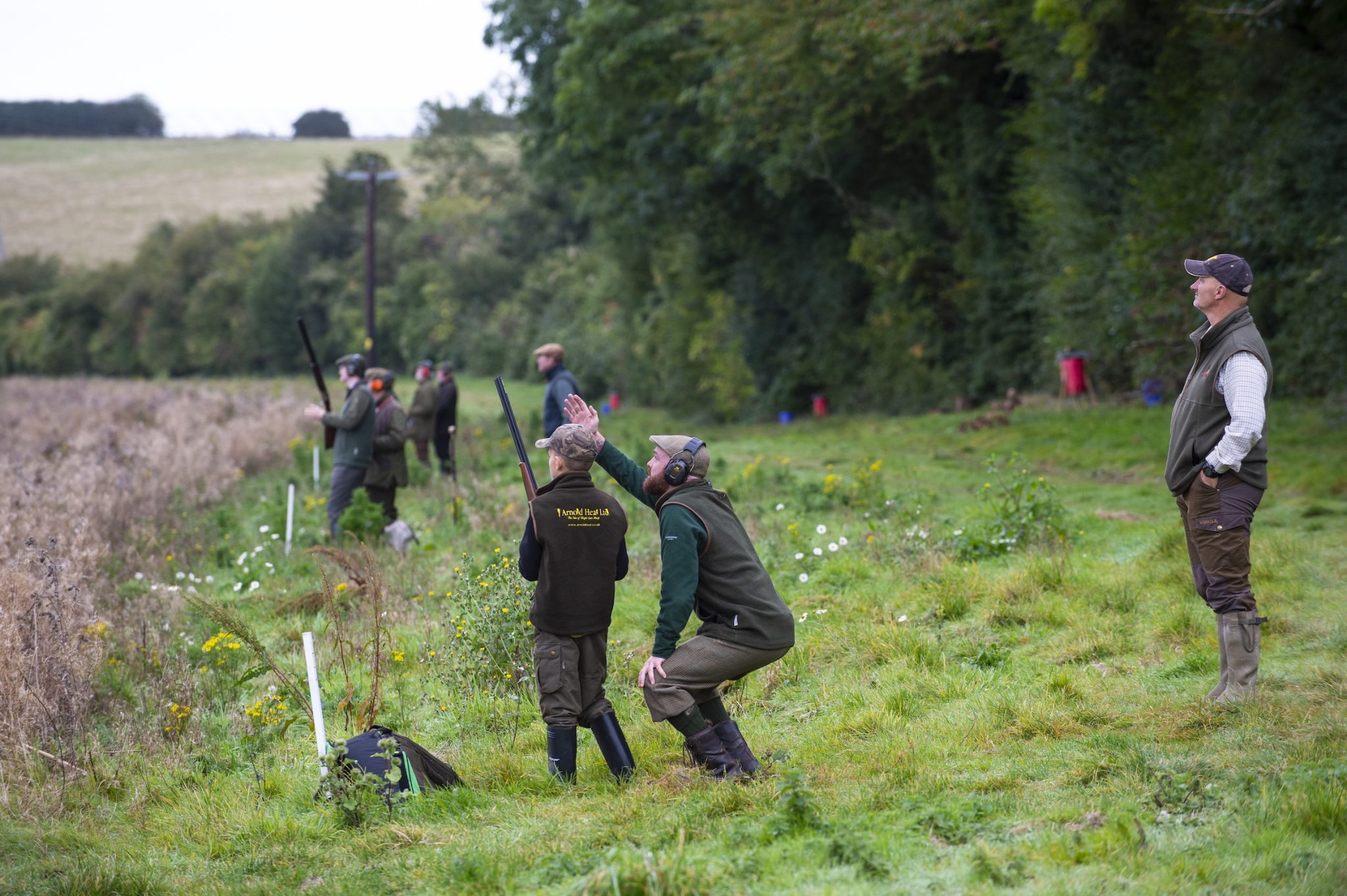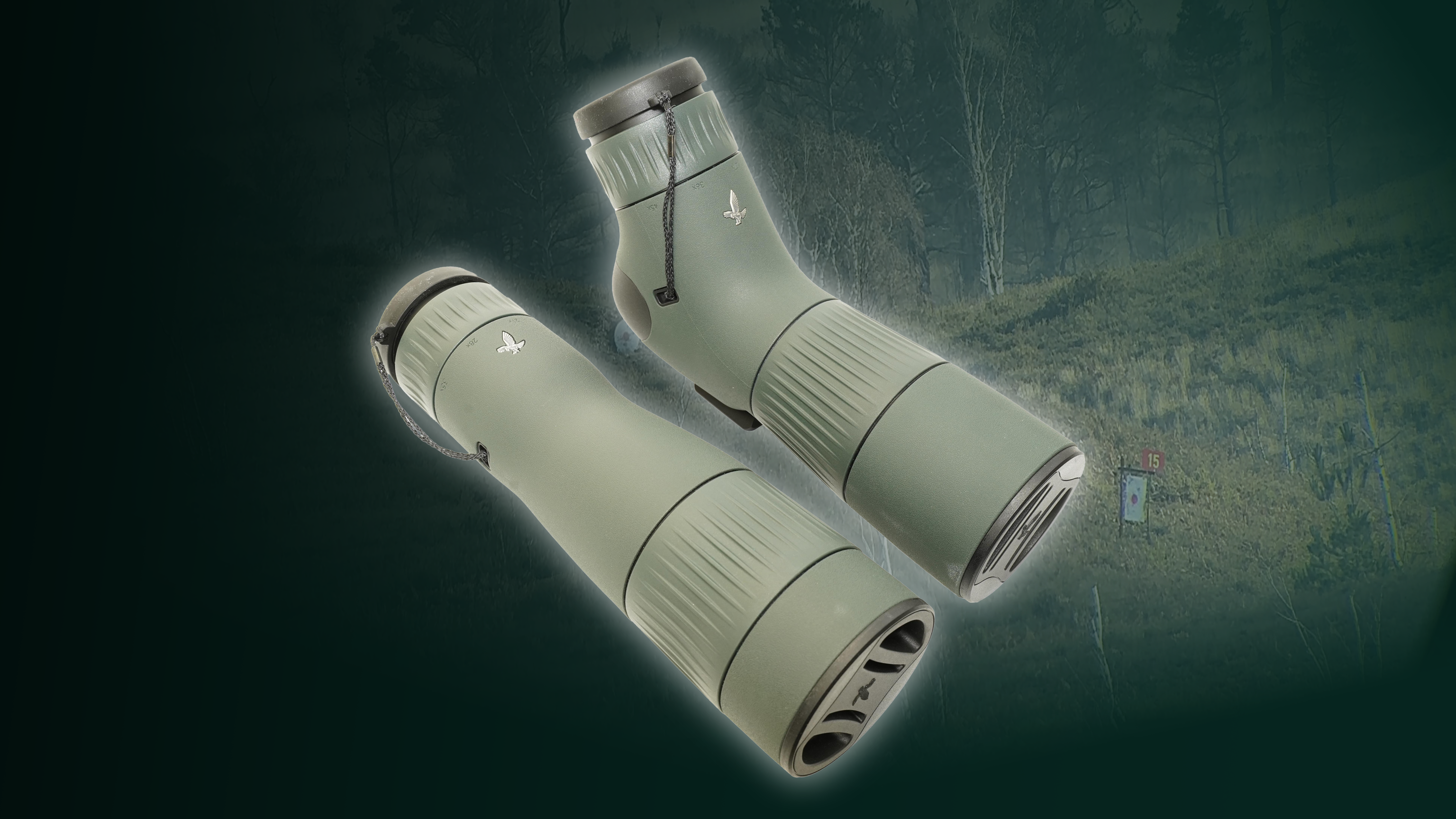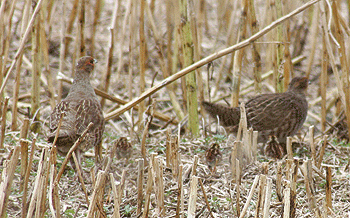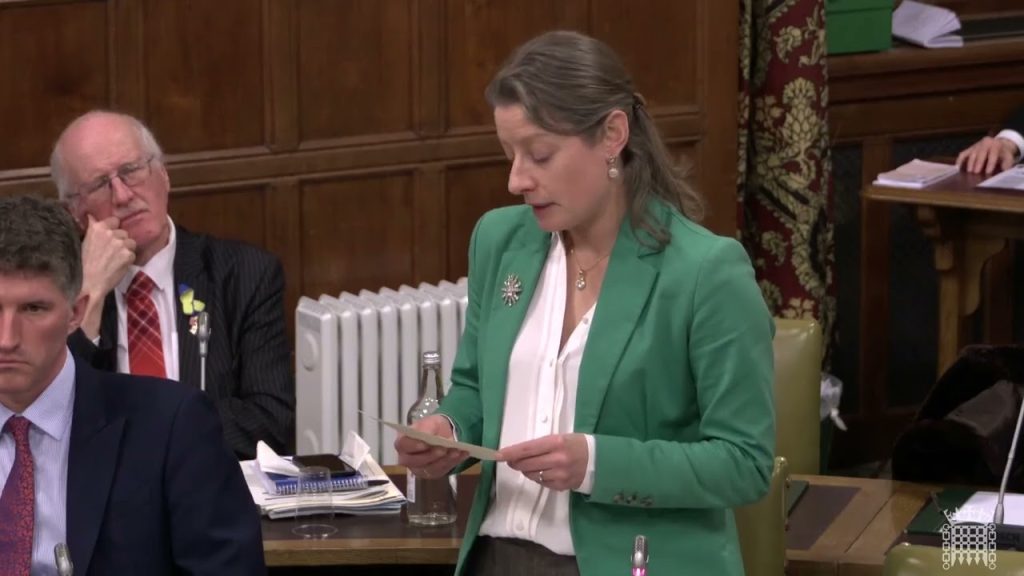How do you bring partridges back when they are extinct locally? Well, you don’t need to be a millionaire, you…
The countdown is on for The British Shooting Show – book tickets online today and save on gate price!
GWCT gives advice to help grey partridges
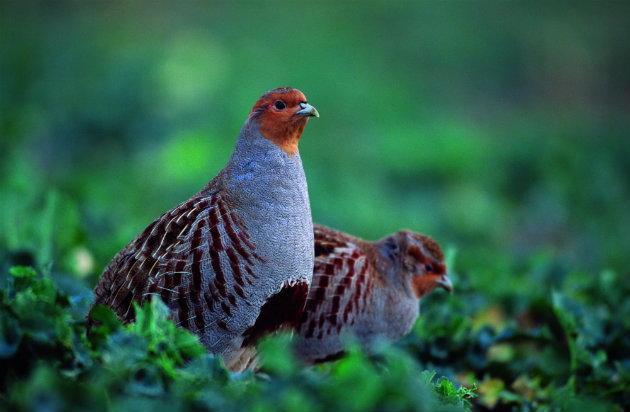
The Game & Wildlife Conservation Trust (GWCT) is calling on farmers, landowners and the fieldsports community to help ensure that wild grey partridges survive the coming winter. In contrast to reports of optimistic partridge prospects, the early results of the GWCT 2016 Partridge Count Scheme (PCS) have caused the organisation concern, particularly regarding chicks’ chances of survival over the colder months.
Dr Roger Draycott, head of advisory at the GWCT, said that by taking part in its PCS and adopting certain conservation measures, farmers and keepers can help more birds survive the winter. “Initial reports give a very patchy picture across the UK. In some parts of England, chick production appears to have been low,” he said.
“Though breeding success is not as bad as it was following the summer of 2012, which was the worst summer for grey partridges this century, chick survival could well be the lowest it has been since then. Consequently, care needs to be taken to ensure enough birds survive this autumn and winter to sustain breeding densities next spring,” Dr Draycott added.
“In Scotland, the few counts reported so far indicate a similar situation, though the uncertainty there is greater, as many farmers have yet to finish their harvest.”
The GWCT says that gamekeepers and shooters must ensure that they set a sustainable level on their shoot bags to safeguard the number of breeding birds and suggests that participating in the PCS could help.
“Do not shoot grey partridges at all unless you take steps to conserve them”
The organisation also says that keepers need to maintain effective overwinter crops and tussocky grass margins and not cut or plough them until next spring. These habitats allow birds a means of escape from predation as well as providing additional late-winter food.
Dr Draycott further outlined six “golden rules” for shooters and keepers regarding grey partridges:
- Do not shoot wild grey partridges if you have fewer than 20 birds per 250 acres in the autumn. Below this level, the population has little ability to compensate for shooting losses.
- Stop shooting wild grey partridges as soon as the threshold of 20 birds per 250 acres is reached.
- Avoid shooting grey partridges after the end of December. Birds pair up in the New Year and shooting at this time reduces the breeding stock.
- Never shoot at grey partridges that are in pairs.
- With driven redleg or pheasant shooting, take special precautions to ensure that wild greys are not shot at the same time. Warn the Guns if grey partridges may be on the drive and make them aware that higher birds in tight coveys might be greys.
- Lastly, do not shoot grey partridges at all unless you are taking steps to conserve them.
Visit GWCT to join the scheme online and for further details.
Related Articles
Get the latest news delivered direct to your door
Subscribe to Shooting Times & Country
Discover the ultimate companion for field sports enthusiasts with Shooting Times & Country Magazine, the UK’s leading weekly publication that has been at the forefront of shooting culture since 1882. Subscribers gain access to expert tips, comprehensive gear reviews, seasonal advice and a vibrant community of like-minded shooters.
Save on shop price when you subscribe with weekly issues featuring in-depth articles on gundog training, exclusive member offers and access to the digital back issue library. A Shooting Times & Country subscription is more than a magazine, don’t just read about the countryside; immerse yourself in its most authoritative and engaging publication.



